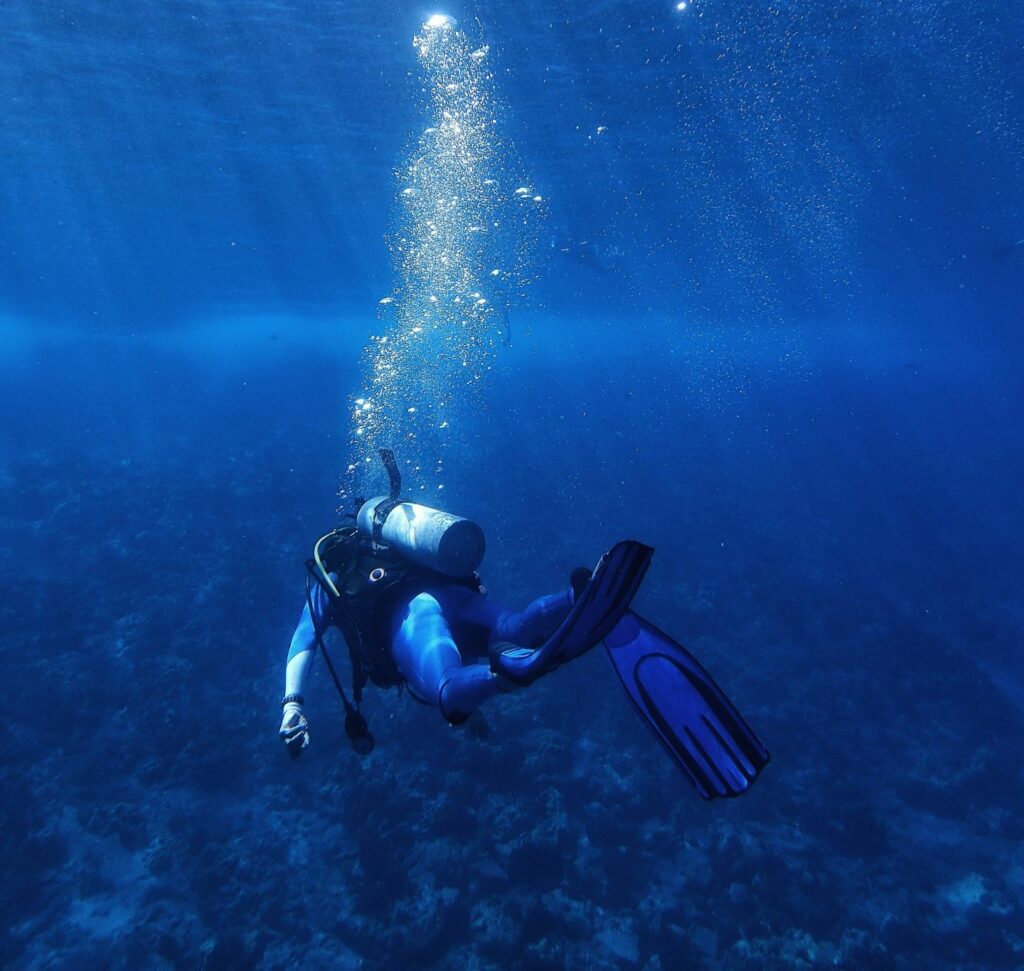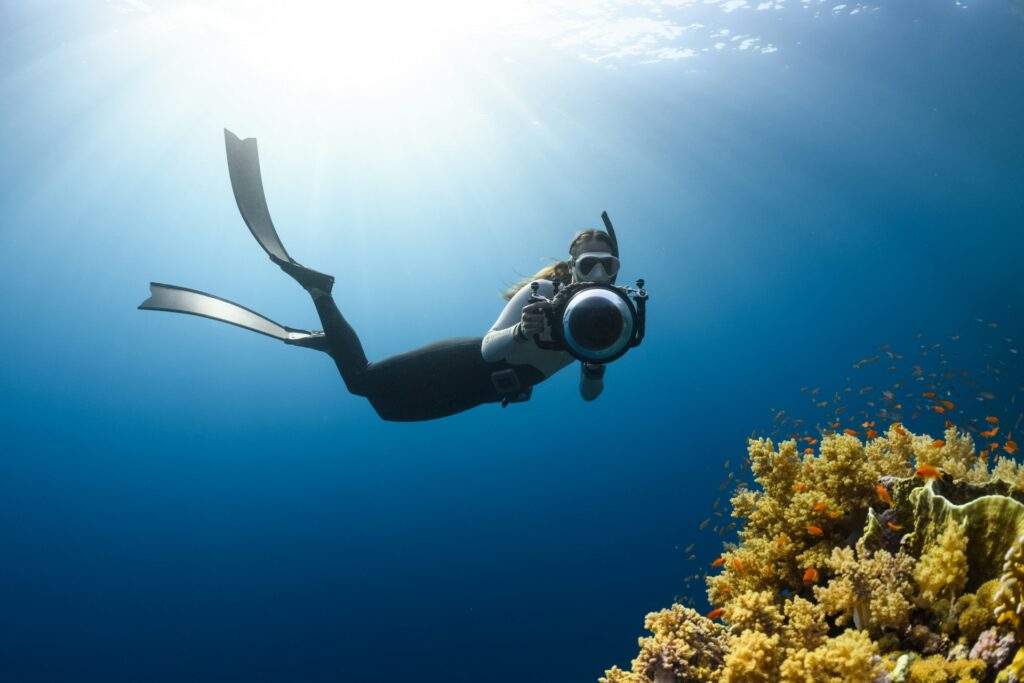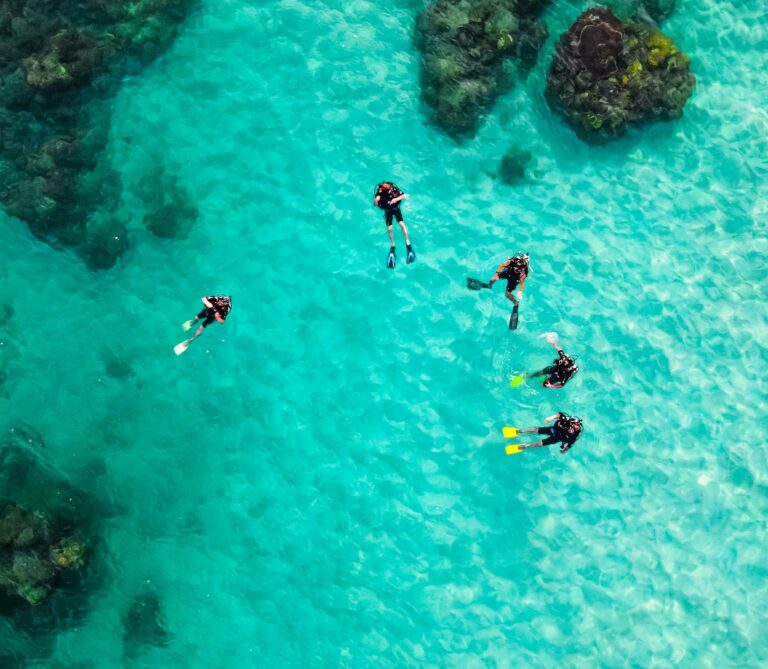Stats don’t lie: We haven’t seen it calculated this way before, but Confused.com Travel Insurance has come up with its own top 10s of both global diving and shark cage-diving destinations – based on the numbers of key marine-life species that can be seen in each country.
The insurer’s statisticians devised a “wildlife index” that would cover general scuba and cage-diving along with two land-based travel sectors – general safari experiences and jungle safaris – by selecting 200 of “the most iconic animals” travellers might hope to spot.
It then matched these species to countries considered to offer the best opportunities of seeing most of the animals in their natural habitat.
It’s an idea, but how did it come up with the 200 species? For diving destinations, from a PADI blog suggesting 13 Bucket List Marine Animals And Where To Dive With Them; from a US dive-tour company’s “creatures” page; and from the fish ID page of a places-to-snorkel website.
The cage-diving data comes from the Shark Research Institute’s list of all known sharks, and animals’ geographical ranges were based on data contained in the IUCN Red List of Threatened Species.
Simply the best
“There were over 183,300 searches for scuba diving in the UK last year, making it the most popular wildlife-spotting activity,” says Confused.com, declaring that the best countries for wildlife scuba have “clear, warm waters and many species, from the tiniest seahorses to manta rays and more”.

Top of the list based on its wildlife index is therefore Australia, because the nation can offer 44 of the 200 key species.
Crown jewel is the Great Barrier Reef with its sharks, turtles, “countless fish” and corals, not forgetting Tasmania’s kelp forests and the “historic wrecks off Queensland” and their attendant fish. Clownfish are singled out for attention.
Close runner-up nation is the USA with 43 species, from the Florida Keys to California’s Channel Islands with their sea-lions, and Hawaii. Green turtles get an honourable mention.
As readers will notice, a practical drawback of assessing destinations for specialist travellers in this way is that the winning nations are vast. Divers might stack up a massive internal carbon footprint tracking down all those keynote species across America or Australia.
Indonesia, Japan and Taiwan, offering 40 key species apiece, have to be content sharing third place.
The Coral Triangle might have been expected to score highly in terms of marine biodiversity, and Indonesia can offer Raja Ampat, Komodo and Lembeh Strait and those Confused key species manta rays and seahorses.
In Japan the Okinawa islands are recognised for their turtles, sharks and corals, while Taiwan has the Penghu Islands, Kenting National Park, Green Island and the “must-see” mandarinfish.
The other Top 10 diving destinations are PNG and the Philippines, both with 37 species, and Egypt, Malaysia and New Caledonia, each with 35.
In and out of cages
The shark cage-diving list is also intriguing because, based only on numbers of species found in each country, it seems to bear only a passing resemblance to the realities of cage diving, which revolve mainly around great whites in a few hotspots around the world.
It’s almost as if the Confused insurers think that all diving with sharks is carried out from behind bars!
The USA tops this list on the basis that 34 of the key species can be found there, from the Farallon Islands on the west coast as prime location for white shark encounters to Florida with its bull, nurse and occasional tiger shark opportunities. The prospect of cage-diving with nurse sharks might well fail to draw the crowds.
Runner-up is Australia (26), where the Neptune Islands are indeed among the world’s most consistent locations for white shark watching, followed by Brazil tying with South Africa across the Atlantic on 25.
Recife in Brazil does offer encounters with bull and lemon sharks but is hardly known as a cage-diving destination, whereas South Africa remains closely linked with white shark encounters despite the orca activity that has affected the industry in recent years.
The top 10 is completed by Portugal – 24 shark species but only the blues and makos of the Azores are likely to reveal themselves much to divers – and the unlikely cage-diving triumvirate of Japan, Mexico and Morocco (22).

A subsidiary question raised in the survey was: “Which countries have the most protected areas?” First, relevant to divers because the nation is also the most marine-based, is Seychelles with 61.5%, followed by New Caledonia at 59.7%. This is based on World Bank data.
The purpose of assessing the best wildlife dive destinations is of course to help sell insurance for specialist holiday activities, and you’ll find full details of what’s on offer to divers from Confused.com.
Also on Divernet: 52 pro divers’ favourite local dive-sites, PADI names 12 world-beating shark-dive sites, How cage-diving can be positive for sharks, Ocean Census targets 100k unknown marine species

